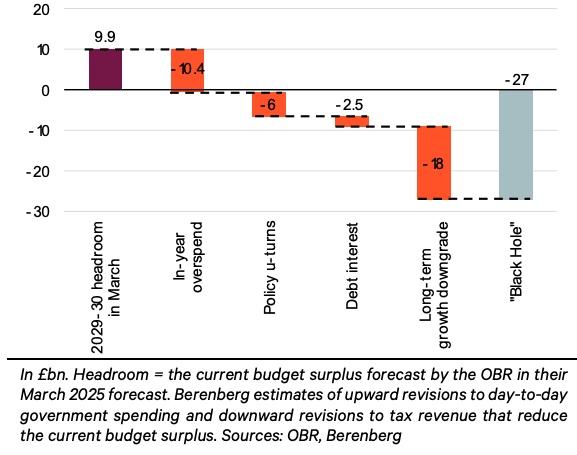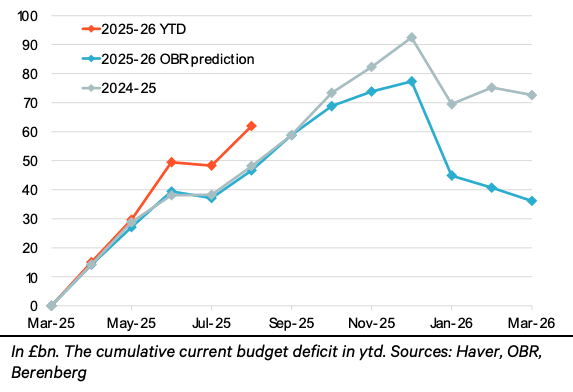
File image of Keir Starmer. Picture by Simon Dawson / No 10 Downing Street.
A potential pound selloff next year is a key concern for investors, according to Berenberg Bank economist Andrew Wishart.
He warns that the government's impending budget is unlikely to settle market nerves over the UK’s fiscal outlook.
"Many worry that political developments could trigger a major sell-off in gilts and the pound next year," Wishart said in a new note, released October 02.
The main risk, he argues, is that Labour could replace Keir Starmer with a leader less committed to deficit reduction.
"Wholesale abandonment of the government’s commitment to fiscal sustainability would likely trigger a major sell-off in gilts and the pound that forces any new prime minister to change their tune and recommit to fiscal responsibility," says Wishart.
Manchester Mayor Andy Burnham has already signalled a willingness to challenge Starmer and steer the party in a new direction. A key plan of his would be to raise approximately $40BN from debt markets to fund the building of new social housing.
At the same time, he urges his colleagues not to be "in hoc" to bond markets, a suggestion that the government should feel free to spend as it wishes.
Wishart says "political risks" come amidst a distinct market concern about the UK's debt trajectory, highlighted by UK bond yields rising further above those of other G7 economies despite the country's relatively prudent fiscal path.
(The government issues bonds to raise funds from lenders; the yield is the effective interest rate the government pays to those borrowers.)
He attributes the premium on UK bond yields to rising government spending that's pushing fiscal consolidation off course and to expectations of a Bank of England pause in rate cuts owing to the UK's elevated inflation levels.
Official forecasts from the Office for Budget Responsibility (OBR) had projected borrowing would fall, but in reality, it has been rising in recent months.
The government still aims to meet its rule of balancing day-to-day spending with tax revenues by fiscal year 2029-30, something confirmed by Chancellor Rachel Reeves at this week's Labour Party Conference.
However, Berenberg expects the OBR to predict a £27bn shortfall against this target without corrective measures.

The OBR is due to release its projections to the government today.
Berenberg estimates that restoring a margin of safety would require £35bn–40bn of tax increases and spending cuts.
Wishart explains that the government is unlikely to raise costs for businesses again, given inflation pressures linked to payroll tax and minimum wage hikes previously announced by the government.
Instead, higher taxes are more likely to fall on non-employment income, residential property, banks and gambling companies.
Wishart concludes that without credible fiscal tightening, investors could continue to demand a higher risk premium on UK assets.

